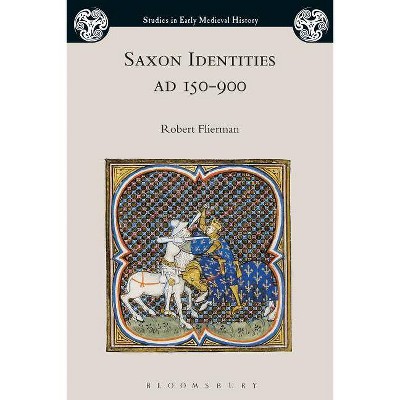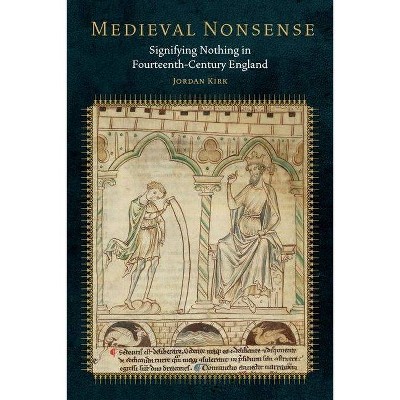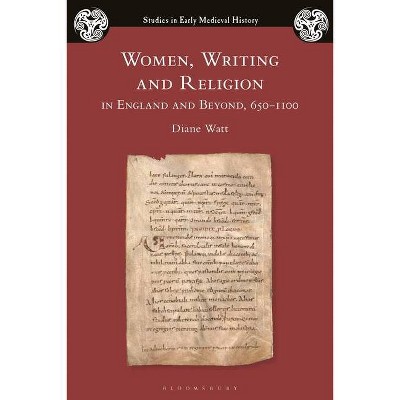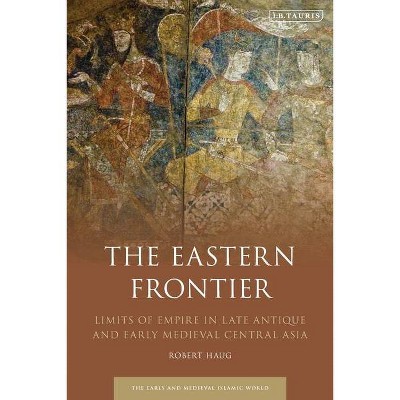Saxon Identities, Ad 150-900 - (Studies in Early Medieval History) by Robert Flierman (Hardcover)

Similar Products
Products of same category from the store
AllProduct info
<p/><br></br><p><b> About the Book </b></p></br></br>"This study is the first up-to-date comprehensive analysis of the construction of continental Saxon identity in late antique and early medieval writing. It traces this process over the course of eight centuries, from its earliest roots in Roman ethnography to its reinvention in the monasteries of ninth-century Saxony. Building on recent scholarship, this study emphasises not just the constructed and open-ended nature of barbarian identity, but also the crucial role played by texts as instruments and resources of identity-formation. Though mentioned as early as AD 150, the Saxons left no written evidence of their own before c. 840. Thus, for the first seven centuries, we can only look at Saxon identity through the eyes of their Roman enemies, Merovingian neighbours and Carolingian conquerors. What we encounter when we attempt this, is not an objective description of a people, but an ongoing literary discourse on what outside authors imagined, wanted or feared the Saxons to be: dangerous pirates, noble savages, bestial pagans or faithful subjects. Significantly, these outside views deeply influenced how ninth-century Saxons eventually came to write about themselves following their conquest and conversion by the Frankish King Charlemagne, relying on Roman and Frankish texts to reinvent themselves as members of a noble and Christian people"--<p/><br></br><p><b> Book Synopsis </b></p></br></br><p>This study is the first up-to-date comprehensive analysis of Continental Saxon identity in antiquity and the early middle ages. Building on recent scholarship on barbarian ethnicity, this study emphasises not just the constructed and open-ended nature of Saxon identity, but also the crucial role played by texts as instruments and resources of identity-formation. This book traces this process of identity-formation over the course of eight centuries, from its earliest beginnings in Roman ethnography to its reinvention in the monasteries and bishoprics of ninth-century Saxony. <p/> Though the Saxons were mentioned as early as AD 150, they left no written evidence of their own before <i>c.</i> 840. Thus, for the first seven centuries, we can only look at the Saxons through the eyes of their Roman enemies, Merovingian neighbours and Carolingian conquerors. Such external perspectives do not yield objective descriptions of a people, but rather reflect an ongoing discourse on Saxon identity, in which outside authors described who they imagined, wanted or feared the Saxons to be: dangerous pirates, noble savages, bestial pagans or faithful subjects. Significantly, these outside views deeply influenced how ninth-century Saxons eventually came to think about themselves, using Roman and Frankish texts to reinvent the Saxons as a noble and Christian people.</p><p/><br></br><p><b> Review Quotes </b></p></br></br><br>Robert Flierman's original discussion of perceptions of the people labelled 'Saxons' in antiquity and the early middle ages neatly and convincingly addresses texts as instruments of identity formation. The development of views of the Saxons as disparate groups of 'barbarian' outsiders in Roman texts to their being regarded, in Merovingian sources at least, as a well-defined people, is traced authoritatively. The book culminates in the role of the Saxons in Carolingian war narratives and Saxon self-representation. Flierman's book is not only an important and engaging contribution to the debate about ethnicity in the barbarian successor kingdoms of Europe. It also represents a timely challenge to the assumptions of a link between textual representation and ethnic reality.<br/>Rosamond McKitterick, Fellow in History, University of Cambridge<br><p/><br></br><p><b> About the Author </b></p></br></br><b>Robert Flierman</b> is Assistant Professor in Medieval History at the Radboud Universiteit Nijmegen, The Netherlands.
Price History
Price Archive shows prices from various stores, lets you see history and find the cheapest. There is no actual sale on the website. For all support, inquiry and suggestion messagescommunication@pricearchive.us




















